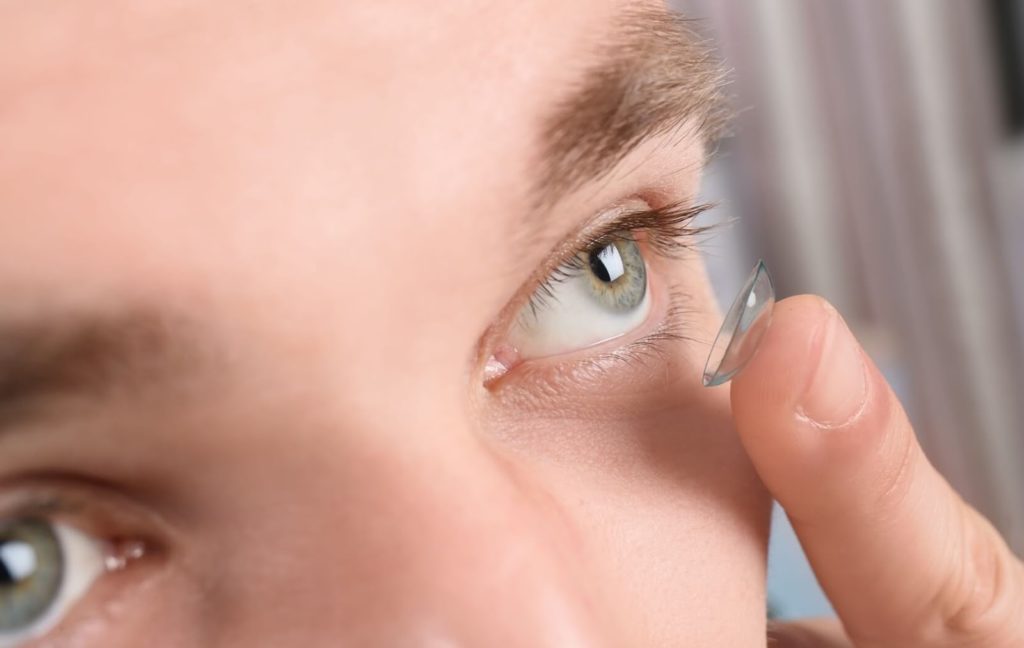Dealing with dry eye syndrome can be frustrating—especially if you rely on contact lenses for clear vision but find it difficult to wear them comfortably. So, is it possible to wear contacts when you have dry eye?
The short answer? Yes, you can wear contact lenses if you have dry eye syndrome, but you need to take the right approach. Modern advances in contact lens technology have led to the development of lenses specifically designed for people with dry eyes.
What Is Dry Eye Syndrome?
Before we jump into contact lenses, let’s take a closer look at dry eye syndrome, also known as dry eye. This condition occurs when your eyes either produce low-quality tears or don’t produce enough tears to keep your eyes moist. Common symptoms include:
- A gritty or sandy feeling in your eyes.
- Burning, redness, or irritation.
- Blurred vision that comes and goes.
- Sensitivity to light.
Millions of people worldwide experience dry eye syndrome—sometimes due to age, screen time, environmental factors, underlying health conditions, or even certain medications.
If you’ve dealt with the discomfort that comes with this condition, you already know that it can make wearing contacts even trickier.
Which Contact Lenses Are Best for Dry Eye?
Not all contact lenses are created equal, which is why finding the right kind of lens can make a huge difference. The best contacts for dry eye focus on reducing potential irritants and increasing hydration for the eyes. Some types of contacts that might be easier with dry eye include:
Daily Disposable Lenses
Daily disposable lenses are great for those with dry eyes because they allow you to use a fresh pair of lenses every day. Since there’s no need to clean and store them overnight, you’re less likely to deal with protein or debris buildup that can irritate your eyes.
Silicone Hydrogel Lenses
Silicone hydrogel lenses are made from a material that allows more oxygen to pass through to your eyes. This can help reduce dryness and maintain eye health while wearing contacts.
Water Gradient Lenses
Water gradient lenses are designed with a high water content on their outer surface to keep your eyes hydrated throughout the day. They can provide exceptional comfort for those with significant dryness.
Scleral Lenses
For severe dry eye cases, scleral lenses might be the solution. These lenses are larger than regular contacts and rest on the whites of your eyes, creating a reservoir of fluid that helps keep your eyes moist.
Contact Lenses with Wetting Agents
Certain contact lenses are infused with wetting agents designed to keep your eyes lubricated and comfortable. Look for brands that highlight moisture retention as a key feature.
The Right Lenses for You
To find the best contact lenses for your needs and lifestyle it’s important to consult your optometrist. Your optometrist can assess which factors will benefit your eyes the best and can make sure you find a contact solution for you.
Tips for Wearing Contact Lenses with Dry Eyes
Even with the best lenses, managing dry eye syndrome while wearing contact lenses often involves some proactive care. Here are a few strategies to improve your comfort:
Use Artificial Tears
Over-the-counter artificial tears can be a game-changer. Look for preservative-free drops, as preservatives in some eye drops can exacerbate dryness over time.
Practice the 20-20-20 Rule
If your job involves staring at a computer screen for long hours, follow the 20-20-20 rule to reduce eye strain. Every 20 minutes, look at something 20 feet away for 20 seconds.
Stay Hydrated
Keep yourself hydrated by drinking plenty of water. A well-hydrated body leads to well-hydrated eyes. Aim for at least eight glasses a day.
Keep Your Air Clear
Environmental factors like air conditioning, heating, or windy conditions can worsen dry eye symptoms. Use a humidifier at home, and try to avoid direct exposure to fans or vents.
Give Your Eyes Regular Breaks
Consider alternating between glasses and contacts to give your eyes a break. Even just a few hours without contacts can often provide relief from dryness.
Wear Sunglasses Outdoors
Sunglasses can protect your eyes from drying out in windy or sunny weather. Look for wraparound styles for extra coverage.
Talk to Your Eye Doctor About Prescription Solutions
There are prescription eye drops, gels, and medications that may help improve your natural tear production. Your optometrist can guide you toward treatments tailored to your needs.
Why Soft Contact Lenses May Not Work for Everyone
While soft contact lenses like silicone hydrogel are often a good choice, they aren’t the best option for everyone. Some cases of dry eye may make it difficult to tolerate soft lenses.
If comfort remains an issue despite trying different types of lenses and following the tips above, your doctor may recommend scleral lenses or even switching to glasses for extended wear.
Should You Consult an Eye Doctor?
Absolutely! If you’re struggling to manage dry eye syndrome and want to explore whether contact lenses can work for you, scheduling a consultation with your eye doctor is essential. They can:
- Assess the severity of your condition
- Help you choose a lens that suits your needs
- Recommend treatments to manage dry eye symptoms effectively
Finding the Right Contacts with Dry Eye
Whether you’re switching to a new lens type or adopting daily habits to manage dryness, the key is to listen to your eyes. What works for one person may not work for another, so don’t be afraid to explore your options until you find what’s most comfortable for you.
At Headwaters Optometry, we offer a variety of contact options for people with and without dry eye. To get started on finding the right eyewear option for you, book an appointment with us today.




